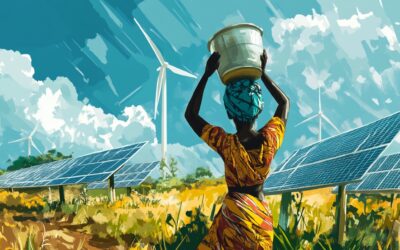This week’s global climate policy and finance developments span high-stakes treaty talks, shifts in bank alliances, and new climate data. From Brazil’s licensing reforms to U.S. opposition in plastics negotiations, these ten stories highlight the political and financial forces shaping the pace and direction of the low-carbon transition.
Brazil limits new licensing law after partial veto
President Luiz Inácio Lula da Silva has signed a bill to ease environmental licensing but vetoed key provisions after objections from climate advocates and prosecutors. The measure keeps faster permitting for energy and transport projects while blocking changes seen as weakening safeguards for forests and Indigenous lands, according to Reuters.
The partial veto preserves oversight for sensitive areas, though some streamlining remains. Investors will watch how the revised rules affect renewables and transmission projects ahead of COP30 in Belém.
UBS leaves Net-Zero Banking Alliance
UBS has become the latest major lender to quit the UN-backed Net-Zero Banking Alliance, following similar moves by Barclays and HSBC. The bank said it will pursue its own decarbonisation strategy and review other climate-related memberships, Bloomberg reported.
The departure raises questions over the future of coordinated financed-emissions targets. It signals a shift toward individual bank policies rather than uniform alliance commitments.
U.S. opposes plastic production caps in treaty talks
A leaked memo shows the U.S. urging countries to reject binding limits on virgin plastics production in the upcoming global plastics treaty. Washington instead backs measures focused on waste and recycling, The Guardian reported.
The stance deepens divisions with nations seeking upstream production cuts. The outcome will shape future petrochemicals investment and international trade in plastics.
UN plastics negotiations resume with enforcement unresolved
Delegates have restarted talks in Geneva on a global plastics treaty, with disputes over production caps, chemical controls, and enforcement design. Options under discussion include opt-in mechanisms that could weaken compliance, Reuters reported.
Funding for waste systems in emerging markets and extended producer responsibility remain sticking points. The treaty’s strength will depend on how these provisions are resolved.
U.S. plans to end two NASA climate missions
The Biden administration intends to shut down two NASA missions tracking methane emissions and plant health. The projects supply data used for climate regulation, crop forecasting, and emissions verification, The Washington Post reported.
Scientists warn the loss could hinder methane rules and climate risk assessments. Lawmakers are expected to challenge the cuts.
July was third-warmest on record
The EU’s Copernicus Climate Change Service has confirmed July 2025 as the third-warmest July ever recorded. Global temperatures were 1.53°C above pre-industrial levels over the past year, with Turkey setting new national records, AFP reported.
The findings reinforce calls for heat-adaptation measures and resilience spending. They also highlight energy-system pressures during extreme heat events.
Con Edison seeks 11% rate rise amid heat shutoffs
New York utility Con Edison is seeking state approval for an 11% electricity rate hike while having cut power to tens of thousands during a heatwave, Gothamist reported.
Regulators face pressure to balance grid investment for climate resilience with affordability. The case will test how utilities recover climate-driven costs without worsening energy insecurity.
Heatwaves threaten European nuclear output
Research this week shows rising river and sea temperatures are forcing more nuclear plants in Europe to reduce output or shut down during heatwaves, Politico Europe reported.
This constraint on baseload power during peak demand could drive up prices and volatility. Policymakers may need to revise cooling standards and invest in grid diversification.
Standard Chartered to market Amazon forest credits
Standard Chartered will sell up to five million carbon credits for Brazil’s Acre state from 2026, with most revenue going to local forest and Indigenous projects. The bank aims to meet stricter quality standards to boost market confidence, Wall Street Journal reported.
The deal could channel significant finance to forest protection. It will also test whether high-integrity “avoidance” credits attract sustained corporate demand.
Scientists and lawmakers challenge U.S. energy chief on climate assessments
Scientists and members of Congress have criticised Energy Secretary Chris Wright for moves to revise and promote climate reports that downplay links between emissions and extreme weather. The dispute was reported by The Guardian.
Critics say weakening federal climate assessments would undermine evidence-based policy. States and independent researchers may take on a larger role in providing trusted data.




